
Konya Shamsrumi: What is the process of writing a poem like for you? Is it a lot of hard work or is it easy?
Hannu Afere: For me, writing poetry is basically conducting experiments through language. William Wordsworth says (and I agree to a certain degree) that poetry cannot be produced by strictly following the rules laid down by the Classicists. It must flow out naturally and spontaneously from the soul of the poet. This, of course, makes more sense after the poet has given careful thought to what it is he’s got to say. Remember, “poetry has its origin in emotion recollected in tranquillity”.
Now, when I say experiments, I mean that my process is largely a function of the osmosis of my environment at any given point in time, permeating through my state of mind. I tend to favour, always, the scientific approach. Filtration, crystallization of an idea, a deliberate decantation. Sometimes, I’d subject a thought to what I call the sublimation to find the sublime. There is a figurative chromatography.
When I write, I keep a general skeleton of what I want to happen in a poem, and then I go to work. Sometimes, the poem takes me where it wants, so that the end-product doesn’t look at all like what I planned originally but I have come to realize it is what it is. There is no one-size-fits-all method.
There are times when I have written 100-line poems in under 30 minutes, and there are times when I have spent a whole week trying to figure out a single sonnet. Not all my experiments have been successful, however, I have come to find the more important thing sometimes is the journey.
I am a hip-hop head so that has also helped in honing my innate lyrical ability. I started out just writing rap songs and performing them in front of friends and family. And when I say rap, I am not referring to the trending abomination of mumbling. To be a good rapper one has to know how to work with wordplay, rhythm, assonance and limited bars—you only have 16. I sucked at first, but I found out that the more I practiced, the better I became at expressing myself. Soon, I’d become well-versed in the poetic use of epizeuxis, metrical variation and alliteration. I didn’t even need to go off-point just to rhyme. I wrote what I meant and meant what I wrote.
It didn’t matter whether the form chose the poem or the poem chose the form—haikus or traditional ballads, hymns or confessionals, as soon as I got the hang of it there was this juvenile need to show off. But then I realized being eclectic for aesthetics alone or for the sake of eccentricity alone was the wrong approach. I felt now that I had to write. I had things to say. Using poetry, I realized how powerful my voice could be. How I could make a difference, how I could engage minds and really resist the culture of oppression I was directly and indirectly experiencing.
Also, writing poetry is stimulating because it’s nearly always shorter than prose. When you move from point ‘a’ to ‘b’, it always feels very rewarding. But this doesn’t mean it is easy. You have to be disciplined. You are condensing all your thoughts and inserting only the most profound units.
One thing I do that helps my craft is I write something new every day. No matter how little. That way, my lyrical muscles do not atrophy.
Konya Shamsrumi: Please describe your identity in this or any possible world in imagery or metaphor?
Hannu Afere: I am, first and foremost, Yoruba. It is something that seeps out from quill to parchment even subconsciously. I was raised on a steady diet of history lessons. My biggest allies while growing up were my grandmother and my great grandmother—both of whom are now late. So even though I am not nearly as good as they were speaking the language, I can hold my own. I dream in my mother tongue and think in my mother tongue. And while I’m alive, while I write and teach, I know that the language can never fall into extinction.
In all my writing, you will find that I have a penchant for yūgen in nature and spiritual symbolism. I am also nearly always interrogating Christianity, the religion of my childhood. For vehicles, I favour science fiction and horror. But I know there is no poem I can write that will be more powerful than the horrors we engage with, daily, in real life.
I am a millennial with a strong sense of the position my race, gender, religious affiliation and political ideologies occupy in society and so I am in the vanguard of encouraging justice, fairness and equality.
Trivia: My surname, Afere, is short for Afere bi ekun. Which when literally translated, means “He who is as light on his feet as a wild cat”. Ironically, I have never kept cats. Though I intend to sometime in the future. I like to believe there is some trans-generational epigenetic inheritance at play here—I try to stay light on my feet, whatever task it is I am undertaking. The goal is to move quickly, and make only the right kind of noise, if one is making any noise at all.
Konya Shamsrumi: If any of your poems could literally save a person’s life, which poem would it be and can you describe the person whose life you think it would have saved?
Hannu Afere: Mostly, each poem is engineered to talk back to the reader. Inviting him/her/them to come see the world through my eyes. Like, even if you’re wearing sunglasses and do not totally agree with all of my theories, I am sure we could still rub minds and try to expand our horizons
A large part of my work is about my personal struggles. Initially, it was strange for me to decide to do this. I mean, time was when we all kept diaries with little padlocks on them and got cross when other people read them. Now we just put everything on social media and get cross when people don’t read them! It’s interesting, this custom. But I have learnt that other people benefit through my writing. Can’t deny that. And I think whoever enjoys what I write must be damaged like me. So, it’s like Lecrae says, some people can be healed through seeing my scars. Using my poems, I thought I might as well just go for it and slice myself open for other people’s benefit.
I honestly don’t know if my poetry could literally save a person’s life. But I should hope that it could.

Konya Shamsrumi: What Africa means to you, as potential or reality
Hannu Afere: Africa is a pot containing 1.216 billion tiny fragments of God. Africa is how I wear my skin. Africa is the taste of metaphors in my mouth for nostalgia, for present day challenges and for the future. The United Nation says that by 2050, the population of Africa would have doubled. Maybe there is a cause for alarm, but maybe there is also a bright side—one in every four humans will be African. This means we can no longer continue to be relegated to the background. This means we need to start investing heavily in human capital.
The other day, I read a researcher in the Washington Post who said that by 2030, 43 percent of all Africans are projected to join the ranks of the global middle and upper classes. By the same year, household consumption is expected to reach. $2.5 trillion, more than double the $1.1 trillion of 2015, and the combined consumer and business spending will total $6.7 trillion. We are looking at suitors in the form of the Chinese, Indians, Brazilians and Arabs. There is potential. What we need to do is play our cards right and deal decisively with corruption.
Konya Shamsrumi: Could you share one Poem you have been most impressed or fascinated by. Tell us why and share favourite lines from it
Hannu Afere: This is difficult because there are literally thousands of breath-taking poems out there. Off the dome though, I would say The Hound of Heaven by Francis Thompson. It’s ancient.
I first read it when I was 13. It’s stuck with me since, because it was my introduction to longer poems. It was included in the Oxford Book of English Mystical Verse, which is interesting because it carries the ornately larger-than-life style and sublimity of African seers. In a recent conversation with a friend, she said the timbre was more like that of the Hebrew seers. I jokingly asked “So you sef see say oyinbo dey get babalawo?” The themes revolve around Christianity and the sinner with the divine seeking him out without relenting, but what got my attention was the obscurity of the mysticism. It drew me in, in awe and reverence, all one hundred eighty-two lines of it. To share my favourite lines:
I am defenceless utterly.
I slept, methinks, and woke,
And, slowly gazing, find me stripped in sleep.
In the rash lustihead of my young powers,
I shook the pillaring hours
And pulled my life upon me; grimed with smears,
I stand amid the dust o’ the mounded years—
My mangled youth lies dead beneath the heap,
My days have crackled and gone up in smoke;
Have puffed and burst as sun-starts on a stream.
In his valuable Essay on Francis Thompson (1936), Francis Owlett quotes the lines showing that in the spring of 1888, when Thompson was a “derelict by the shores of Charing Cross” and was writing such thoughts as these, he had but a shilling in his pocket.
HANNU AFERE is a Lagos-based writer whose works have appeared in Former People, Omenana, Praxis and other publications. He is the co-author of the graphic novel Trinity as well as the animated miniseries, How The Story Folds. Presently, Hannu is the Managing Editor of WOW Magazine. He is also the Editor-in-chief of a forthcoming anthology of contemporary West African Poetry.
When he is not travelling or surfing the internet, he can be found spending time with his dogs, Rain and Poe. He is a devoted student of all things spiritual and arcane.






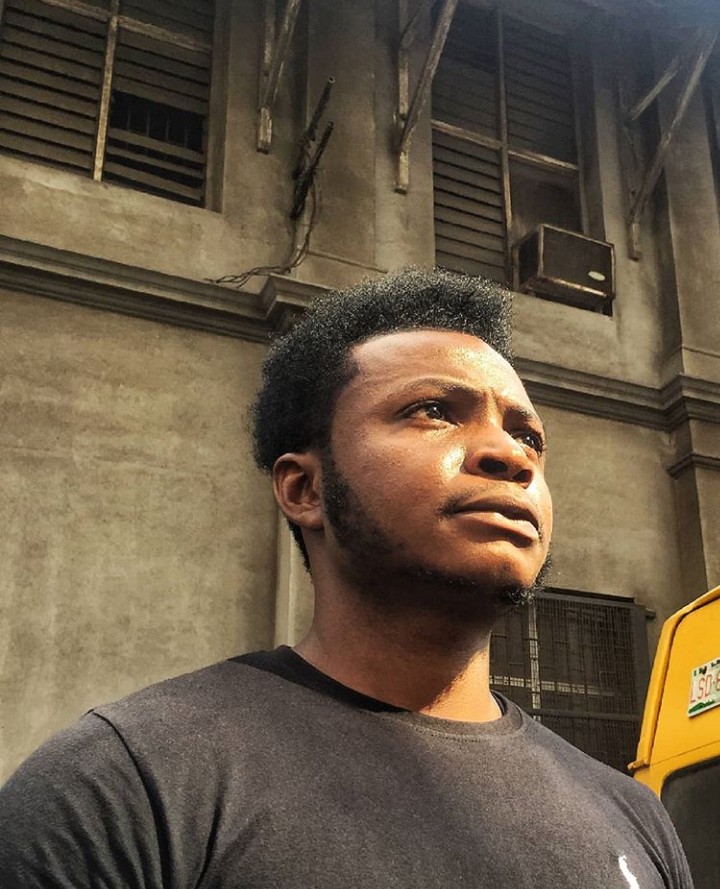

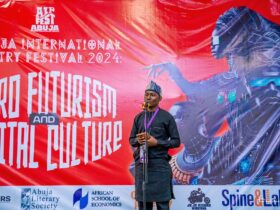
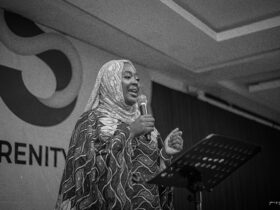
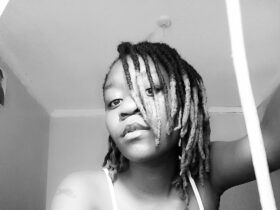
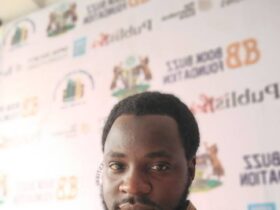

Leave a Reply